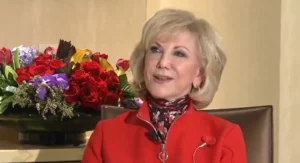Biden signs law to ban TikTok nationwide
By TOI Desk Report
April 24, 2024
Update on : April 24, 2024

US President Joe Biden on Wednesday signed a law that would ban Chinese-owned the video-streaming app TikTok unless it is sold within a year.
It is the most serious threat yet to TikTok’s future in the US, intensifying the US’s tech war with China, reports NPR.org.
On Tuesday, the US Senate voted to approve the bill banning TikTok countrywide unless Chinese parent company ByteDance sells its stake in the popular app.
In 2017, ByteDance purchased the popular karaoke app Musical.ly and relaunched the service as TikTok.
Since then, the TikTok app has been under the microscope of national security officials in Washington as it fears possible influence by the Chinese government.
According to the Pew Research Center, TikTok has soared despite concerns in Washington. Nearly 170 million Americans, about half of the country, used the app which has become the trendsetter in the world of short-form video.
Lawmakers and the Biden administration argue that as long as a Chinese company owns TikTok, it is obliged to the dictates of China’s authoritarian rule.
Democratic Senator Maria Cantwell, who chairs the Senate Commerce Committee, in remarks on the Senate floor Tuesday afternoon that Congress is not acting to punish ByteDance, TikTok, or any other individual company.
Soon after Biden signed the bill, in a video posted to the platform TikTok CEO Shou Zi Chew said he is confident TikTok would win in court. Users should not imagine issues with the app in the meantime.
The law would make it illegal for web-hosting services to support TikTok, if not sold within a year.
The new law would force Google and Apple to remove TikTok from app stores.
The US has passed a law for the first time that could trigger the ban of a social media platform. Civil liberties groups and Constitutional scholars condemned it.
According to TikTok, millions of Americans’ free speech would be suppressed by the Biden administration’s new law.
Kate Ruane, who runs the Center for Democracy & Technology’s Free Expression Project echoed the sentiment. Kate Ruane said the law is unconstitutional and a blow to free expression in the US.
















